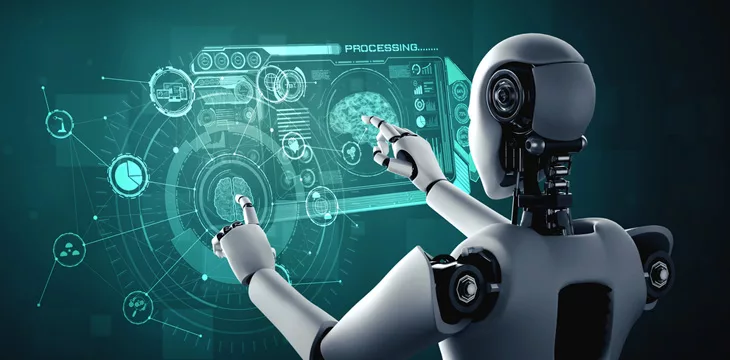|
Getting your Trinity Audio player ready...
|
As artificial intelligence (AI) seeps into every facet of the global economy, a new study submits that workers with AI skills are more likely to earn more than their peers in the work environment.
The study is a collaboration between the Oxford Internet Institute and the Center for Social Data Science of the University of Copenhagen, exploring the impact of AI skills on earnings. According to the joint study, workers with AI skills may earn up to 40% more than their peers without similar skills.
The reason for the gap in earnings stems from the highly “complementary” nature of AI skills compared to other skill sets in the report. In their submission, researchers argue that the most valuable workplace skills can be combined with other skills for maximum output.
“We find that AI skills are particularly valuable -increasing workers wages by 21% on average – because of their strong complementarities and their rising demand in recent years,” read the report.
The joint study pointed out that AI skills can be combined across several verticals, unlike proficiency in photo editing, which is limited to only skills in the same vertical. While AI skillsets top the charts, the report specifically mentions machine learning, tensor flow, and deep learning as the most in-demand AI skills for employees to learn.
Natural language processing and data science rank at the bottom of the pile for in-demand AI skills as firms take key steps to integrate AI into their operations. Since the start of the year, several companies have embraced generative AI tools like ChatGPT and Bard to improve efficiencies.
At the moment, AI job postings are at an all-time high, with firms intensifying their search for machine-learning experts, surpassing the metrics for Web3 jobs.
Alongside the integration of generative AI is the palpable fear of job losses to AI in the workplace. Several reports have since identified entry-level roles in customer care, media, and programming as being at risk for replacement by AI tools.
For Aboitiz Data Innovation (ADI) CEO David Hardoon, rather than eliminate jobs, AI will create more jobs in the economy.
“Artificial intelligence will not replace people,” Hardoon told CoinGeek in an interview. “We are critically important and in fact, I can guarantee that the outcome of AI is needing more people because AI is about knowledge and providing information.”
The great upskilling
In light of the concerns about AI’s impact on the work environment, an IBM report argues that to remain relevant in a competitive work environment, up to 40% of the global workforce will require new AI skills.
Around 1.4 billion workers are expected to be affected by the upskilling trend, with employees in finance, marketing, risk, and compliance expected to be the most affected demographic.
“As technology becomes more user-friendly, employees are also able to do more with less advanced skills,” IBM stated. “Plus, as machines take over mundane tasks, people can spend more time on problem-solving and collaborative work that require stronger people skills.”
70% of CEOs in the U.S. are already increasing their investments in AI despite the hazy impacts of the technology on job security and other ethical concerns.
In order for artificial intelligence (AI) to work right within the law and thrive in the face of growing challenges, it needs to integrate an enterprise blockchain system that ensures data input quality and ownership—allowing it to keep data safe while also guaranteeing the immutability of data. Check out CoinGeek’s coverage on this emerging tech to learn more why Enterprise blockchain will be the backbone of AI.
Watch: Turning AI into ROI

 07-15-2025
07-15-2025 





